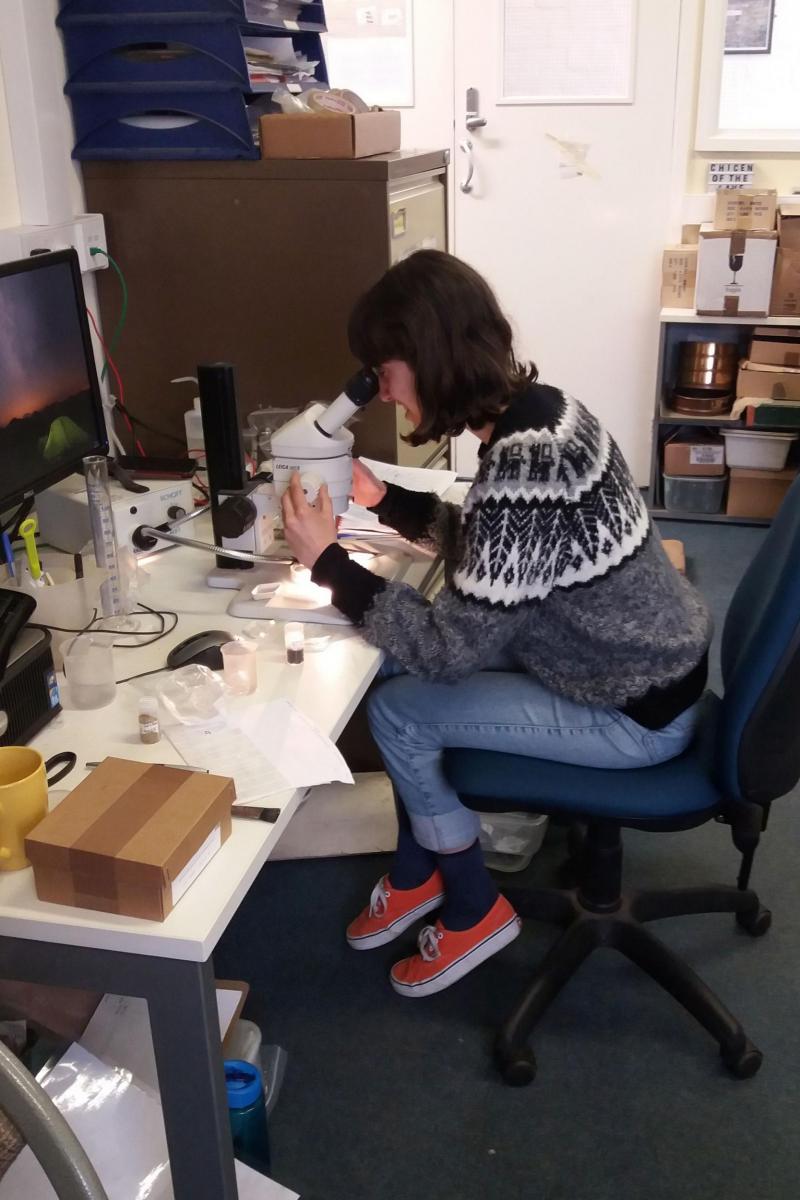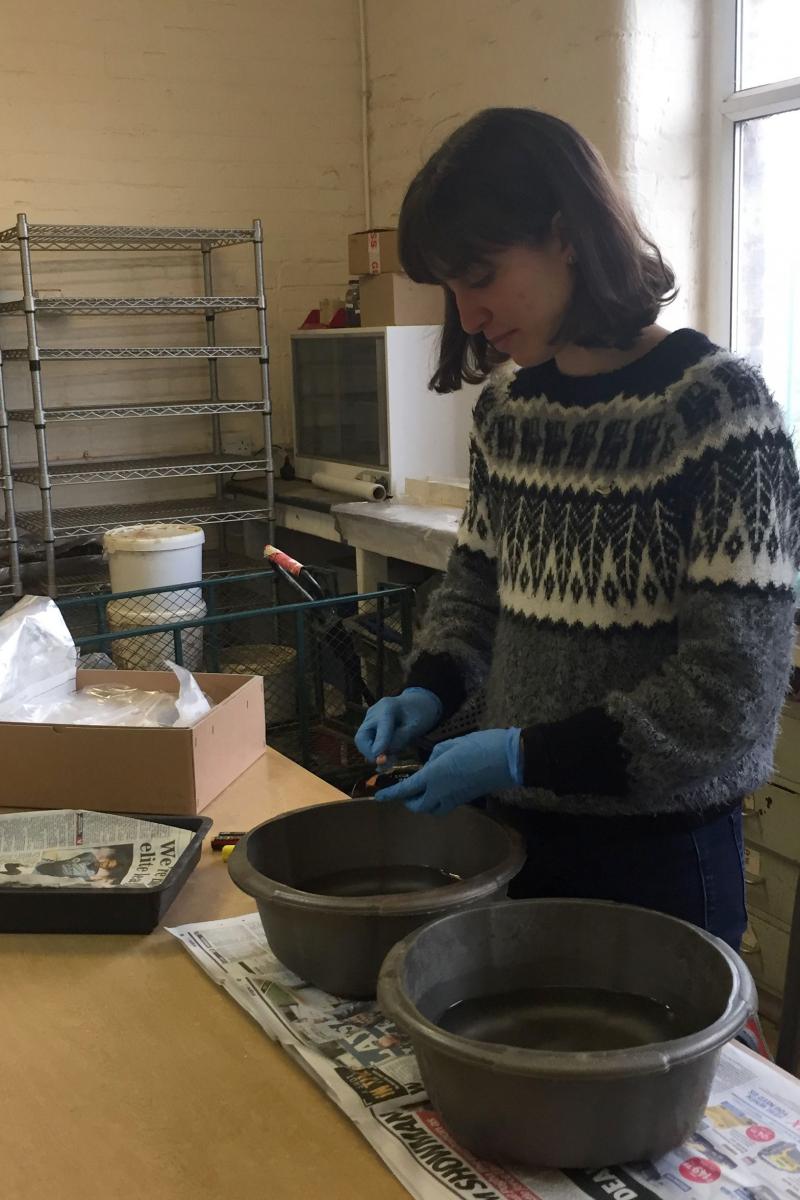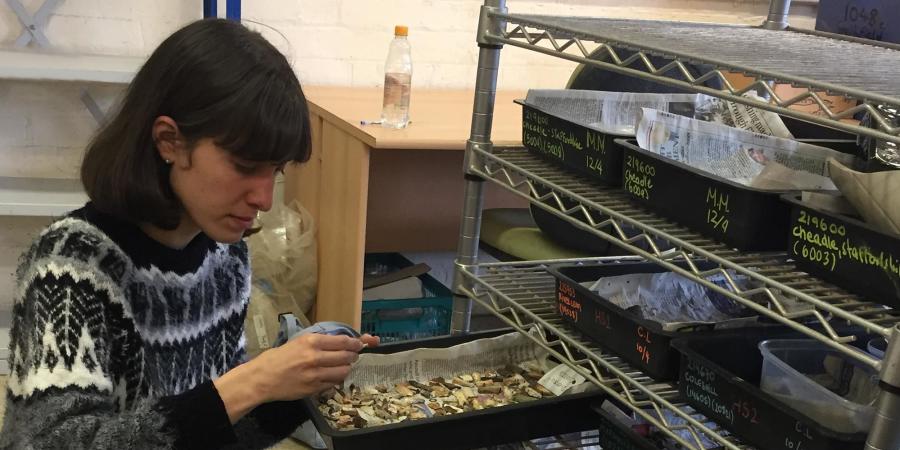As part of my MA in Medieval Archaeology at the University of Sheffield I had to undertake a two-week work placement. I chose Wessex Archaeology for mine, as I wanted to experience archaeology in a commercial organisation, thereby gaining an introduction to a possible professional career rather different to my university research projects.
During the two weeks I spent at Wessex Archaeology in their Sheffield office I was introduced to, and had the opportunity to get hands-on experience with, a wide variety of steps forming part of the archaeological process in commercial archaeology, from desk-based assessment to publication.
On the first day I spent some time with Beth from the Heritage team, who gave me an insight to the national planning and heritage policies relevant to commercial archaeology. Being from Uruguay, which does not have this kind of legislation, Beth’s introduction gave me a good idea of how things work in the UK. Moreover, she talked me through the kind of research undertaken as part of a desk-based assessment using GIS, Heritage Gateway and other platforms. That day I also learnt about producing reports and other publications.
During the first week I had the opportunity to spend an afternoon with Ian from the Graphics team, who explained how artefacts are drawn, including how digital technology facilitates the preparation of drawings for publication. I really enjoyed having the chance to have hands-on experience of archaeological illustration – I have never done it before! – by drawing two Romano-British pottery sherds from a site in Lincolnshire.
The remainder of my first week was spent on site in Leeds. I had done excavations before, but it was very illuminating to see how a commercial unit carries out fieldwork. Indeed, the landscape was new to me, as it was a construction site where I had to wear protective equipment, high-visibility clothes, and be very aware of heavy machinery operating nearby. During the excavation I had the opportunity to learn the Wessex Archaeology way of recording and I was also taught how environmental samples are taken and finds are processed on site. This experience also made me realise the amount of hard work the diggers put in and the long hours involved in a commercial archaeology excavation.


Because I am particularly interested in find processing and archiving, I spent most of my second week with Jenny from the Finds team. I learnt about all steps involved in finds processing, from the moment they arrive from site, until they are ready to go to a local museum. I was taught and had hands-on experience of washing, marking, quantifying and storing the finds. I particularly enjoyed preparing a wooden post to be sent to the specialist in Salisbury, as it needed special care and storing for its conservation. I really enjoyed being involved in find processing because it gave me the opportunity to hold in my hands special artefacts that have been in the ground for years and that need care in order to be preserved for the future; that responsibility gave me a special thrill. Whilst with the Finds team I also had the chance to look through the medieval finds from Sheffield Castle and Pontefract Castle, which was very special!
Finally, I had the chance to learn about environmental archaeology. Liz (the Environmental Archaeologist) gave me a lot of information to read and videos to watch, and explained to me the different methodologies and rationale behind them. She also allowed me to use the microscope to look at environmental remains, including different types of seeds.
I enjoyed my time at Wessex Archaeology very much as it not only allowed me to learn and experience the work done in a commercial archaeology unit, but it also allowed me to gain new skills that I will certainly use in my future career and research.
By Cecilia Levratto
